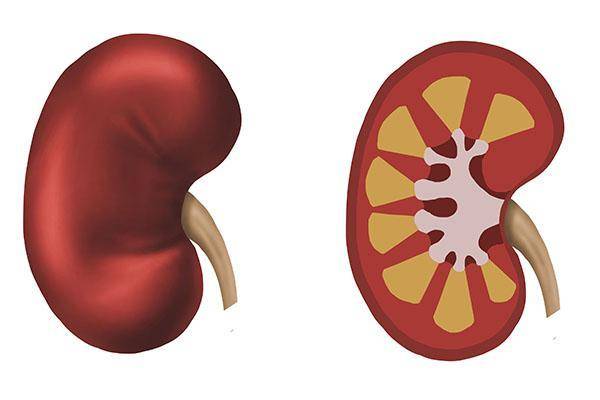The kidneys are very important for men. Men with good kidney function and sufficient kidney qi will be stronger and have a more masculine appearance. However, many men in daily life have insufficient kidney qi due to improper diet and unhealthy habits, resulting in abnormal physical conditions. If detected, it is essential to adjust properly, restore kidney qi, and rejuvenate vitality.
What is kidney qi deficiency?
Kidney qi is a concept in traditional Chinese medicine, referring to the energy transformed by the kidney meridian in the human body. Kidney qi deficiency is also a terminology in traditional Chinese medicine, mainly reflecting the condition of kidney function. If there is kidney qi deficiency, men are prone to premature aging, illnesses, shortened lifespan, and compromised health. There are many reasons for kidney qi deficiency, such as prolonged contemplation and melancholy, frequent smoking and drinking, preference for spicy and greasy foods, etc.
Men with kidney qi deficiency usually exhibit five abnormal conditions. Once identified, proper adjustment is crucial.
1. Lower back pain
Deterioration of kidney function in men can lead to lower back pain. When the body lacks kidney qi, noticeable pain may occur in the lower back. If lower back pain persists over a period, excluding strain from heavy lifting or strenuous activities, kidney qi deficiency should be considered. It is advisable to consult a physician promptly and adjust accordingly based on individual circumstances.
2. Sensitivity to cold
Many women may be more sensitive to cold due to their constitution, but generally, men have better vitality and tolerance to cold compared to women. However, if men experience kidney deficiency resulting in kidney qi insufficiency, they may frequently feel cold. Even in pleasant spring weather, their hands and feet might feel icy. If such symptoms occur, kidney qi deficiency should be taken seriously.
3. Strong preference for heavy flavors and spicy foods
Men often enjoy eating spicy foods, and some may particularly favor spicy dishes. According to traditional Chinese medicine, a preference for spicy foods, beyond just lifestyle habits, indicates poor function of the spleen and stomach. If reliance on spicy foods persists over time, signaling a dulled sense of taste and a need for strongly flavored foods, it implies kidney qi deficiency, necessitating attention.
4. Premature graying of hair at a young age
Traditional Chinese medicine theory states that the kidneys govern hair. When the kidneys are deficient and lack ample qi, hair may turn white due to insufficient nourishment. If a relatively young man suddenly develops white hair without genetic predisposition, it is time to consider kidney qi deficiency and take measures to nurture and supplement kidney qi.
5. Dizziness and tinnitus
Feeling dizzy upon poor rest is common, but if sudden and persistent dizziness and ringing in the ears, significantly affecting daily life, occur in men over a period, it requires special attention. If other diseases are ruled out, kidney qi deficiency may be the cause which demands vigilance and timely adjustment.
How to adjust kidney qi deficiency?
The best way to supplement kidney qi is through dietary therapy, which is effective, minimally side-effect, safe, and healthy. Here are three recommended kidney-enhancing foods for reference:
1. Goji berries. Goji berries are widely recognized for nourishing the kidneys. It is advisable to consume them in moderation as they are warm in nature and excessive intake may lead to internal heat accumulation.
2. Lotus seeds. While known for their heat-clearing properties, lotus seeds are also beneficial for kidney replenishment and blood tonification. To boost kidney qi, consider adding lotus seeds to soups during cooking.
3. Chinese yam. Chinese yam aids in digestion, spleen health, and kidney qi reinforcement. Unlike goji berries, even with substantial consumption, Chinese yam does not cause internal heat, making it more effective in kidney replenishment.
Men with kidney qi deficiency will experience a significant decline in charm. Therefore, it is crucial to pay attention to nurturing and maintenance regularly, to avoid deep regrets once signs of kidney qi deficiency manifest.


